The Best AI Integration Services to Enhance Your Business Efficiency
Discover top AI integration services that can streamline your business operations and boost efficiency. Read the article to find the right fit for you.
RESOURCES
9/13/202511 min read
Top 5 AI Integration Services to Enhance Your Business
AI integration services enable businesses to embed artificial intelligence into their existing systems to streamline operations, enhance decision-making, and boost customer engagement. This article will cover the top AI integration services, demonstrating how they can bring significant operational benefits and drive business growth.
Key Takeaways
Custom AI solutions tailored to specific business needs enhance operational efficiency and innovation, involving partnerships for successful implementation.
Seamless integration of AI technologies into existing systems is crucial for maximizing productivity, requiring assessments of system compatibility and robust data management.
AI integration significantly improves customer engagement by automating interactions and personalizing marketing strategies, leading to higher satisfaction and business growth.
Custom AI Solutions
Custom AI solutions enable businesses to create systems specifically designed to address their unique needs and workflows. These tailored solutions deliver measurable outcomes and maximum value, significantly contributing to business efficiency, cost reduction, and innovation. Investing in custom AI can lead to superior accuracy and efficiency, solving domain-specific challenges more effectively than customized solutions.
The process of developing custom AI solutions involves identifying data characteristics, assessing their impact, and customizing algorithms to ensure they align with business goals and existing technologies. Partnerships with AI consulting firms can provide essential guidance, helping businesses define their AI strategies and ensure successful implementation.
In the following subsections, we will explore specific types of custom AI solutions, including Predictive Analytics, Natural Language Processing (NLP), and Computer Vision.
Predictive Analytics
Predictive analytics leverages AI to analyze large datasets, uncover trends, and generate actionable insights that drive business decisions. Anticipating market trends and making informed forecasts allow businesses to stay ahead of the competition and tailor their strategies accordingly. Adaptive AI models influence predictive analytics in real time, providing personalized recommendations and helping businesses optimize their operations.
Key AI technologies used for predictive analytics include:
Google Cloud AI
IBM Watson
Microsoft Azure
Amazon AI services
These platforms offer advanced tools for data analysis, enabling businesses to make data-driven decisions and improve their overall performance.
By integrating predictive analytics, companies can gain a competitive advantage, anticipate market trends, and deliver more personalized experiences to their customers.
Natural Language Processing (NLP)
Natural Language Processing (NLP) enhances customer experiences by providing contextually aware responses through AI. The latest conversational AI models offer enhanced comprehension and can interpret both audio and visual inputs in real time, making interactions more natural and effective. Implementing NLP in chatbots and virtual assistants can significantly improve how businesses interact with their customers, leading to better service and satisfaction.
NLP is crucial for improving customer interactions in various settings. Automating tasks like customer service inquiries and providing personalized responses helps streamline processes and enhance customer engagement. This advanced AI technology not only automates repetitive tasks but also provides valuable insights into customer behavior, enabling businesses to refine their strategies and improve their services.
Computer Vision
Computer Vision, a field of AI focused on enabling machines to interpret and understand visual information from the world, plays a crucial role in image and video analysis. Industries such as healthcare, automotive, and retail leverage AI for image and video analysis, enhancing their operational capabilities. Automating image and video analysis increases efficiency, reduces manual labor, and improves accuracy in data processing.
Integrating AI technologies like computer vision allows businesses to streamline their operations and gain valuable insights from visual data. For example, in healthcare, computer vision can assist in diagnostic processes by analyzing medical images accurately and quickly.
In retail, it helps optimize inventory management and personalize shopping experiences for customers. Harnessing the power of computer vision enables businesses to significantly improve operational efficiency and service quality.
Seamless Integration into Existing Systems
Integrating AI into existing systems requires careful planning and execution to ensure effective incorporation. Ensuring compatibility and performance allows AI technologies to enhance productivity by minimizing delays and bottlenecks. Successful integration often allows for AI to be adopted with minimal adjustments to existing systems, making the transition smoother and more efficient. Additionally, organizations must consider how to integrate ai effectively to maximize the benefits of these advancements.
Support during AI integration includes:
Providing necessary information and ongoing assistance to maximize efficiency and business outcomes.
Determining the compatibility of existing systems, which is crucial for efficient AI integration.
Addressing any gaps to ensure that AI efforts align with business goals and operational capabilities.
The following subsections will delve into the specifics of System Compatibility Assessment, API Integration, and Data Management.
System Compatibility Assessment
Evaluating system compatibility overcomes integration hurdles posed by legacy systems. Assessing the existing system landscape helps identify gaps that need to be addressed for effective AI integration, ensuring a smooth transition when integrating AI technologies into existing frameworks.
Addressing these gaps ensures that AI integration efforts are aligned with business goals and operational capabilities.
API Integration
APIs are critical for enabling seamless communication between AI applications and existing systems. APIs facilitate smooth incorporation of AI technologies, ensuring effective interaction with and enhancement of existing business processes.
Data Management
Robust data management practices ensure that AI initiatives are supported securely. Key considerations include:
Establishing clear data governance rules before initiating AI integration projects to ensure data is handled securely and efficiently.
Conducting a readiness assessment that considers the availability of skilled personnel necessary for AI implementation.
Regularly monitoring AI performance to ensure effective deployment and continuous optimization.
Ongoing fine-tuning maintains peak performance, while continuous monitoring ensures AI solutions remain aligned with business goals.
Data engineers play a crucial role in resolving basic data source connections to ensure seamless data flow, while secure data pipelines and infrastructure are essential for handling data securely. Effective data management supports the overall success of AI integration by ensuring high data quality, reliable data for AI models to work with, and a robust data strategy.
Process Automation with AI
AI-powered automation significantly enhances operational efficiency by automating repetitive tasks. Automating redundant tasks saves time, allowing teams to focus on business growth and strategic initiatives. Organizations that adopt AI can enhance their operational efficiency, enabling employees to focus on more complex and value-added work.
AI chatbots can handle a larger volume of customer inquiries, enabling human agents to focus on more complex issues. This not only improves customer service but also boosts overall productivity, showcasing our ai expertise and ai tools.
The following subsections will explore Workflow Optimization, AI Model Training, and Ongoing Maintenance in detail.
Workflow Optimization
AI-powered solutions offer several benefits:
Automate repetitive tasks, freeing up resources for strategic initiatives.
Enhance productivity and reduce potential human error by automating routine operations.
Significantly increase operational efficiency and optimize workflow processes with an ai solution.
Overall, integrating AI into workflows not only streamlines operations but also fosters a culture of innovation and adaptability, allowing businesses to seamlessly integrate their processes. This optimization enables businesses to achieve their goals more effectively and stay competitive in a rapidly evolving market.
Check out SuperLysa's AI workflow for Operation here.
AI Model Training
Continuous learning from data helps AI models enhance their accuracy and performance over time. Training AI models involves teaching them specific tasks while ensuring high accuracy. The availability and quality of data are crucial for the continuous learning process in AI model training, especially when utilizing machine learning models.
Improving AI model accuracy over time is crucial for better performance and achieving desired business outcomes. This ongoing training process is essential for maintaining the effectiveness and relevance of AI solutions in dynamic business environments.
Ongoing Maintenance
Regular evaluations and updates are crucial for adapting AI systems to changing business needs. Continuous testing and validation post-implementation maintain AI model effectiveness and relevance. Ongoing maintenance and updates are essential for ensuring optimal performance of AI systems.
Overall, ongoing maintenance plays a critical role in ensuring that AI systems remain relevant and efficient in a dynamic business environment. This continuous care ensures that AI solutions continue to deliver value and support business objectives over the long term.
Enhancing Customer Engagement with AI
Businesses leveraging AI can achieve measurable improvements in efficiency and customer satisfaction. Effective AI strategies can improve customer engagement and retention, contributing to overall business value. AI integration significantly boosts customer engagement by automating interactions and providing personalized support.
Integrating AI technologies allows businesses to customize user experiences, tailoring services to individual customer needs. The following subsections will explore AI Chatbot Development, Personalized Marketing Strategies, and Sentiment Analysis in detail.
AI Chatbot Development
AI chatbots are designed to enhance customer engagement and automate support. AI-driven chatbots offer services like sentiment analysis and language translation, enabling personalized interactions with customers. ChatGPT serves as an advanced tool for integration, allowing generative ai chatbots to deliver human-like interactions.
These chatbots improve customer interactions through natural language understanding, providing tailored responses. Integrating AI-powered solutions like ChatBot enhances customer service and allows for more personalized interactions.
Klarna’s AI assistant, for instance, has replaced 700 human customer service agents, showcasing the scalability of AI in business. Google’s PaLM 2 offers capabilities that include intricate reasoning and query responses, enhancing chatbot communication.
Personalized Marketing Strategies
AI allows marketers to deliver tailored content based on individual customer behaviors and preferences. Analyzing customer data allows AI to create customized marketing strategies that resonate with specific audience segments, driving higher engagement and conversion rates.
This targeted approach not only improves marketing efficiency but also enhances customer satisfaction and loyalty.
Sentiment Analysis
Sentiment analysis is a powerful tool that enables businesses to understand and interpret customer feelings expressed in feedback. Gauging sentiment from customer feedback helps businesses identify areas needing improvement in their products or services.
Sentiment analysis provides insights that allow companies to analyze customer data and make data-driven decisions regarding customer service enhancements.
Industry-Specific AI Integration Services
AI-powered solutions are making substantial impacts across various sectors, enabling improved efficiency and decision-making. Tailored AI solutions cater to the unique needs of different industries, providing customized approaches that drive business growth and innovation. Integrating AI solutions into specific industry contexts ensures that solutions are relevant and effective, addressing the unique challenges and opportunities of each sector.
The following subsections will explore AI integration in Healthcare, Finance & Banking, and Retail, highlighting how AI technologies are transforming these industries.
Healthcare
AI integration in healthcare enhances record-keeping, diagnostic accuracy, and automates patient data management. AI-driven diagnostic systems can improve accuracy by processing medical images and lab results efficiently. Virtual health assistants can provide constant patient support and facilitate appointment scheduling.
Overall, AI leads to significant improvements in healthcare operational efficiency by streamlining workflows and enhancing service quality. These advancements lead to better patient outcomes and more efficient healthcare delivery.
Finance & Banking
AI offers several advantages in fraud detection and financial operations:
Detects fraud on the spot, providing immediate alerts for suspicious activities.
Automatically flags unusual transaction behavior, enhancing fraud prevention.
Speeds up transactions, increasing efficiency in financial operations.
AI automates financial tasks, freeing up human resources for more strategic initiatives. This leads to improved operational efficiency and better financial management, driving business growth in the finance and banking sectors.
Retail
AI agents can optimize retail operations through:
Accurately forecasting stock needs based on market trends to optimize inventory levels.
Using dynamic pricing algorithms powered by AI to adjust product prices in real-time based on market data.
Optimizing inventory, predicting demand, and personalizing shopping experiences to enhance retail efficiency.
Implementing these AI capabilities allows retailers to create a more tailored shopping experience that meets customer demands effectively. This results in higher customer satisfaction and increased sales.
AI Integration for Competitive Advantage
AI integration enables:
Smarter decisions, faster processes, and enhanced outcomes, contributing to long-term strategic transformation.
Businesses to harness large data sets, providing insights that support informed strategic decisions.
Automation that can significantly reduce operational costs by replacing manual tasks with automated processes, thereby improving customer satisfaction. Additionally, implementing ai integration solutions can further enhance these benefits.
Defining clear objectives at the outset is crucial for successful AI implementation, ensuring the strategy aligns with the overall vision of the organization. The following subsections will explore Data-Driven Decision Making, Anticipating Market Trends, and Enhancing Business Value in detail.
Data-Driven Decision Making
Accurate and up-to-date information is crucial for analysis, learning, and delivering insights in AI systems. AI analyzes customer data and raw data behavior patterns to inform business strategies. This enables businesses to make data-driven decisions that are more precise and effective.
AI improves decision-making by predicting market changes, enhancing risk assessment, and enabling fraud detection. Leveraging AI allows businesses to gain a deeper understanding of their operations and make better-informed strategic decisions.
Anticipating Market Trends
AI significantly improves decision-making by predicting shifts in the market and assessing associated risks. Utilizing AI in decision-making supports faster and more accurate responses to market changes. AI-driven tools provide businesses with the foresight necessary to adapt strategies according to anticipated market changes.
AI technologies can identify emerging market opportunities through predictive analytics, helping businesses stay ahead of the curve. Sentiment analysis can reveal customer emotions and opinions, helping businesses adjust their strategies to improve service quality.
Enhancing Business Value
OpenAI integration ensures peak performance and cost efficiency. Ekimetrics aims for measurable results to showcase the effectiveness of their AI integration initiatives. AI integration initiatives enhance overall business value by driving innovation and operational efficiency.
Successful AI initiatives lead to significant enhancements in business value, resulting in optimized processes and improved decision-making that contribute to tangible business outcomes. These improvements contribute to long-term business growth and sustainability.
Getting Started with AI Integration
Key considerations before and during an AI integration project include:
Establishing clear data governance rules before starting the project.
Creating a proof of concept to demonstrate actual benefits before full implementation.
Preparing data for AI model training by collecting, cleaning, and labeling data.
Businesses can embark on researching and building AI-based MVPs and solutions as part of their AI integration strategy. The following subsections will explore the steps of Readiness Assessment, Initial Consultation, and Implementation Plan.
Readiness Assessment
The AI readiness assessment focuses on evaluating current systems. It determines how ready processes are for the ai integration process. Evaluating these systems and processes is crucial to determine where AI can be most effectively applied.
The initial step in AI integration is to identify application cases where AI can bring value.
Initial Consultation
The purpose of the initial consultation in AI integration services is to understand business challenges and objectives for tailoring AI integration. A free consultation allows for detailed plans from AI consulting that align with business goals and challenges.
Businesses can initiate the process of using AI integration services by reaching out via website, email, or call to schedule an initial consultation. AI consulting experts guide on AI opportunities and detailed plans.
Implementation Plan
AI solutions mapping involves developing a strategic plan that outlines suitable AI solutions, including feasibility and impact assessments. A key outcome of AI solutions mapping is selecting the proper technologies and approaches.
Data scientists in AI integration projects design experiments, develop statistical models, and create predictive models. MLOps engineers manage the lifecycle of ML models, automate deployment, and monitor performance. ML engineers are responsible for developing ML models, optimizing algorithms, and managing architecture and deployment.
Data engineers maintain data pipeline infrastructure, ensure reliable data flow, and design scalable architectures. Data analysts perform in-depth analysis, create visualizations, and monitor model performance. An effective implementation plan includes clear milestones to track progress and ensure accountability.
Summary
In conclusion, AI integration offers numerous benefits across various business functions, from automating tasks to enhancing customer engagement and providing a competitive edge. Custom AI solutions tailored to specific business needs can lead to superior accuracy and efficiency, while seamless integration into existing systems ensures compatibility and performance. Robust data management practices and ongoing maintenance are crucial for the success of AI initiatives.
As businesses continue to adopt AI technologies, they can achieve significant improvements in operational efficiency, decision-making, and customer satisfaction. By following the steps outlined in this blog post, companies can effectively integrate AI into their operations and harness its full potential to drive business growth and innovation.
Frequently Asked Questions
What are the benefits of custom AI solutions?
Custom AI solutions enhance accuracy and efficiency by being specifically tailored to your business needs, ultimately driving cost reduction, innovation, and growth. This targeted approach ensures measurable outcomes that align with your organizational goals.
How can AI improve customer engagement?
AI can significantly improve customer engagement by automating interactions and offering personalized support via AI chatbots, while also delivering customized marketing strategies based on customer data and behavior. This leads to more meaningful and efficient customer experiences.
What is the role of data management in AI integration?
Data management plays a crucial role in AI integration by ensuring secure and efficient support for AI initiatives through clear governance, continuous monitoring, and optimization. This foundation is essential for maintaining the effectiveness of AI systems.
How does AI provide a competitive advantage?
AI provides a competitive advantage by enabling smarter decision-making, anticipating market trends, and automating routine tasks, which enhances operational efficiency and customer satisfaction. Consequently, businesses can outperform competitors in the marketplace.
What are the initial steps for AI integration?
The initial steps for AI integration involve conducting a readiness assessment of existing systems, engaging in a consultation to identify business challenges and objectives, and creating a strategic implementation plan with specific milestones.










Proudly serving clients across North America
info@superlysa.ai
© 2025. All rights reserved.


